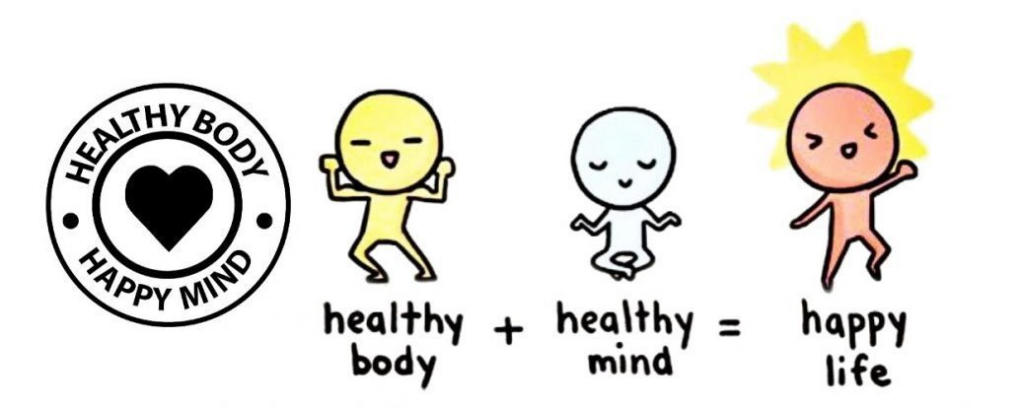In our fast-paced and often stressful modern world, the pursuit of happiness and overall well-being has become a top priority for many individuals. We are constantly bombarded with messages about the importance of physical health, from nutritious diets to regular exercise routines. However, what is often overlooked is the profound impact that our mental and emotional states have on our physical well-being, and vice versa. The mind and body are intrinsically connected, and cultivating a happy mind is not only essential for our emotional well-being but also plays a crucial role in maintaining a healthy body.
The Science Behind the Mind-Body Connection
Scientific research has shed light on the complex interplay between our mental and physical states. Our thoughts, emotions, and attitudes have the power to trigger physiological responses within our bodies, affecting everything from our immune system to our cardiovascular health.
For instance, chronic stress and negative emotional states like anxiety and depression have been linked to an increased risk of various health problems, including heart disease, obesity, and chronic inflammatory conditions. When we experience prolonged periods of stress, our bodies release hormones like cortisol, which can disrupt our sleep patterns, weaken our immune system, and contribute to the development of various health issues.
On the other hand, positive emotional states, such as happiness, contentment, and gratitude, have been shown to have a protective effect on our physical health. Individuals who cultivate a positive mindset and engage in practices that promote emotional well-being tend to have lower levels of inflammation, better cardiovascular function, and stronger immune systems.

Happiness and Longevity
Numerous studies have highlighted the link between happiness and longevity. Researchers have found that individuals who report higher levels of life satisfaction and positive emotions tend to live longer, healthier lives. This relationship holds true even when accounting for factors like age, gender, and socioeconomic status.
One possible explanation for this connection is that happy individuals are more likely to adopt healthy lifestyle behaviors, such as regular exercise, a balanced diet, and adequate sleep. They may also be better equipped to cope with stress and navigate life’s challenges more effectively, reducing the negative impact of chronic stress on their physical health.
Additionally, positive emotions have been associated with lower levels of inflammation, a key factor in the development of various chronic diseases, including heart disease, cancer, and Alzheimer’s disease. By cultivating a happier mindset, we may be able to reduce the damaging effects of inflammation and promote overall health and longevity.
The Power of Mindfulness and Meditation
One of the most effective practices for fostering a happy mind and promoting overall well-being is mindfulness and meditation. These ancient techniques have gained widespread popularity in modern times due to their numerous scientifically-backed benefits for both mental and physical health.
Mindfulness involves cultivating a non-judgmental awareness of the present moment, allowing us to disengage from the constant stream of thoughts, worries, and distractions that often consume our minds. Regular mindfulness practice has been shown to reduce stress, anxiety, and depression, while also improving emotional regulation and overall life satisfaction.
Meditation, on the other hand, involves focused attention and concentration, often achieved through techniques like breath awareness or mantra repetition. Like mindfulness, meditation has been found to have a positive impact on mental and emotional well-being, reducing symptoms of anxiety and depression, and improving overall mood and resilience.
Interestingly, research has also revealed that mindfulness and meditation practices can have tangible physical benefits. Regular practitioners experience lower levels of inflammation, improved immune function, and better cardiovascular health. These practices have also been shown to have a positive impact on conditions like chronic pain, insomnia, and various stress-related disorders.
Cultivating a Happy Mind
While the numerous benefits of a happy mind are well-established, cultivating this state of being can be a challenge in our fast-paced and often demanding world. However, there are several strategies and practices that can help us nurture a more positive and resilient mindset:
1. Gratitude Practice:
Regularly expressing gratitude for the positive aspects of our lives, no matter how small, can shift our focus towards appreciation and contentment. Keeping a gratitude journal or simply taking a few moments each day to reflect on the things we are grateful for can have a profound impact on our overall happiness and well-being.
2. Mindfulness and Meditation:
As mentioned earlier, incorporating mindfulness and meditation practices into our daily routines can help us cultivate a greater sense of presence, reduce stress and negative emotions, and promote overall emotional balance.
3. Self-Care and Nurturing Activities:
Engaging in activities that nourish our minds and souls, such as spending time in nature, pursuing creative hobbies, or practicing self-care rituals, can help us cultivate a happier and more fulfilling life.
4. Social Connection:
Maintaining strong social connections and nurturing positive relationships with loved ones can provide a sense of belonging, support, and emotional nourishment, all of which contribute to our overall happiness and well-being.
5. Reframing Negative Thoughts:
Our thoughts have a powerful influence on our emotional states. By learning to recognize and reframe negative thought patterns, we can cultivate a more positive and resilient mindset, reducing the impact of stress and negativity on our overall well-being.
6. Professional Support:
In some cases, seeking the guidance of a mental health professional, such as a therapist or counselor, can be invaluable in addressing underlying emotional or psychological issues that may be hindering our ability to cultivate a happy and healthy mindset.
Embracing a Holistic Approach to Well-being
Ultimately, achieving true well-being requires a holistic approach that addresses both our physical and mental health. By recognizing the profound connection between our minds and bodies, we can adopt practices and strategies that nurture our emotional well-being while simultaneously promoting our physical health.
Cultivating a happy mind is not just a luxury or a fleeting state of being; it is a fundamental aspect of our overall well-being that has far-reaching implications for our physical health, longevity, and quality of life. By prioritizing our emotional well-being and adopting practices that foster happiness, gratitude, and mindfulness, we can not only experience greater joy and fulfillment but also improve our physical health and resilience in the face of life’s challenges.
In a world that often prioritizes external achievements and material success, it is essential to remember that true well-being begins within. By nurturing a happy mind, we can unlock the key to a life filled with vitality, resilience, and overall well-being – a life where our physical and mental health are in harmony, allowing us to thrive in all aspects of our existence.

